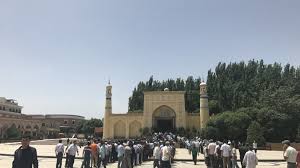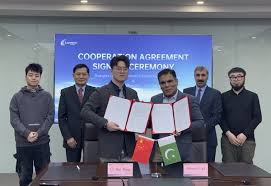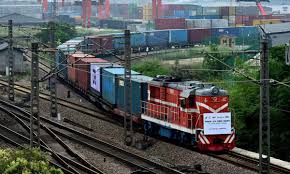Xinjiang Islamic Association denies ‘forceful demolition’ of mosques in Xinjiang

Beijing: Western accusations of “forceful demolition of mosques,” “persecution of religious leaders,” and “restrictions of religious freedom” in Xinjiang are “ridiculous” and “groundless,” and the lies and slandering have deeply offended the feelings of Xinjiang people and tarnished the true picture of Xinjiang, Xinjiang Islamic Association said on Tuesday.
To provide safer and better-equipped places for religious people to pray, the local government had helped renovate some dilapidated religious sites or built new ones in relocation sites at the requests of local Muslims, China Global Television Network (CGTN) quoted the association saying in a statement.
The Xinjiang Islamic Association said under the protection of Chinese law, the freedom of religious belief of Uygur ethnic minorities was fully guaranteed in the region and local people’s cultural and religious traditions from festivities to wedding and funeral rituals were all respected.
“As religious extremism has been effectively curbed, religious activities are carried out in an orderly manner in the region. And in recent years, religious scholars and students in Xinjiang have also participated in steady academic exchanges with other international religious organizations on the basis of mutual respect, equality and friendship.
“Xinjiang people will continue to stand guard against extremism and will expose lies with concrete and righteous deeds,” the association said.
In recent years, China has strengthened its efforts to fight against terrorism and poverty in Xinjiang. Under China’s nationwide poverty alleviation project, tens of millions of Chinese have been lifted out of penury, including people in Xinjiang, where a large population lives below the poverty line.
Part of the project is relocation, meaning moving people from poor mountainous villages to places with abundant resources, like towns and cities, where companies supported by the government can help them land a job or start small businesses due to the centralization.
Ethnic minorities, who voluntarily moved to new relocation sites or factories away from their homes, was viewed by some Western countries as “forced labourers”.
Chinese spokesperson Zhao Lijian said Xinjiang’s prosperity and stability would not be interrupted, and China’s development and progress would not be stopped.





